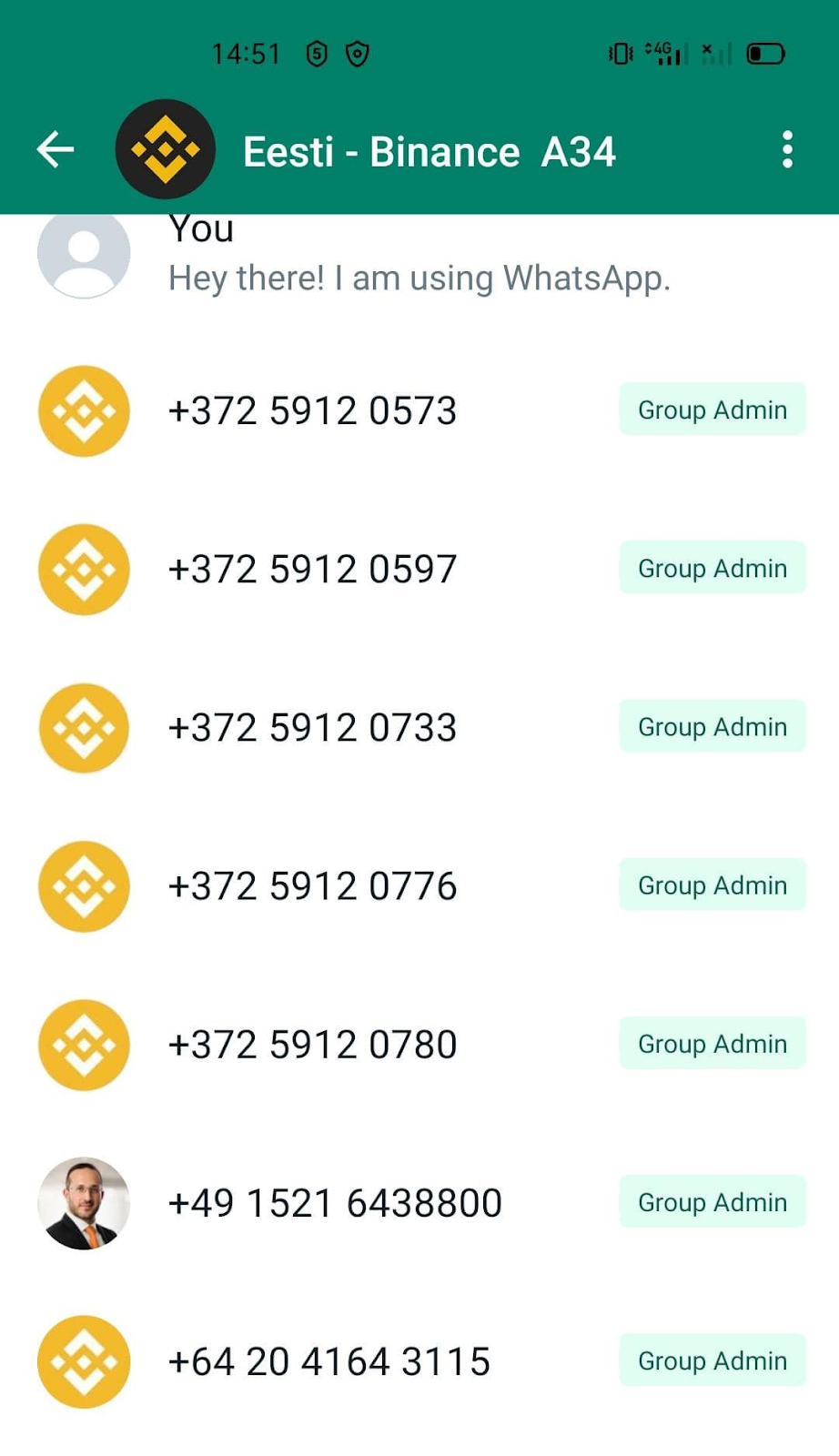Main topics of the post:
Fraudsters often use WhatsApp and other messaging platforms for phishing scams, trying to trick users into sharing personal details.
Binance will never contact users on WhatsApp offering investment advice, discussing cryptocurrency purchases, or soliciting funds.
Be careful with suspicious groups on WhatsApp — stay alert and always consult Binance's official communication channels.
Report suspicious groups using our dedicated link.
The security of your account is of utmost importance to us.
We have been made aware of incidents where individuals impersonate Binance leaders and employees in WhatsApp groups to trick users into sharing sensitive information. You should stay informed and prepared to protect yourself from these malicious attempts.
Please note: Binance will never contact users via WhatsApp, offer investment advice, or ask you to invest in any project or token.
What to do if you've been added to a suspicious WhatsApp group
Don't engage. Avoid communicating with anyone in the group, including the admins.
Take a screenshot. The image should include the following details:
The name of the WhatsApp group.
Phone numbers for group administrators only (Important: do not share personal data of members who are not administrators).
Report the group to Binance Security. Submit your screenshot and report the suspicious group via the specific form. Your submission will be escalated to our security team for immediate action. Example screenshot below.
What is the danger?
One word: phishing.
Phishing scams involve fraudsters attempting to trick victims into sending funds or providing sensitive information through emails, messages, or websites that resemble legitimate platforms or services. Individuals pretending to be Binance representatives will use platforms like WhatsApp to:
Fake identity: Scammers create fake profiles that resemble Binance representatives/employees.
Create urgency: They may claim that there is an urgent issue with your Binance account.
Requesting sensitive information: They will ask for login credentials and two-factor authentication codes, or even ask you to transfer funds to them.
Building trust: Criminals can use information that appears trustworthy, often extracted from public sources.
[REPORT THE GROUP TO BINANCE SECURITY]
How Binance Contacts Users
Binance only contacts users through the following channels:
Binance Customer Support is available 24/7 via our customer support portal.
Our official X account.
Telegram. Make sure to always verify contacts using the Binance Verify tool, which allows you to verify a website, email address, Telegram ID, or other communication channels to validate their legitimacy.
Email. Again, always use Binance's Verification tool to ensure the sender's address is official.
Tips to protect yourself from WhatsApp attacks
Always protect yourself by following these tips:
Never share sensitive information: Do not share your account details or personal information with unofficial or unverified sources.
Update your WhatsApp privacy settings: Adjust your settings so that only specific contacts can add you to groups. Go to WhatsApp Settings > Privacy > Groups, and choose "My Contacts Except..." or "My Contacts" to limit who can add you to groups.
Use Binance Verification: When in doubt, always verify the legitimacy of anyone claiming to represent Binance. You can verify email addresses, phone numbers, WeChat IDs, Twitter accounts, or Telegram IDs through the Binance Verify tool.
Contact Binance Support 24/7: If you have any questions, please contact our official Binance Support team for assistance.
Staying vigilant and informed is your weapon against scams
By understanding how phishing scams typically work, you’ll be better equipped to recognize the signs and protect yourself. Remember, Binance will never contact you via WhatsApp with investment advice or requests for funds. Be vigilant and always trust official communication channels.
Stay safe and always check before engaging.
